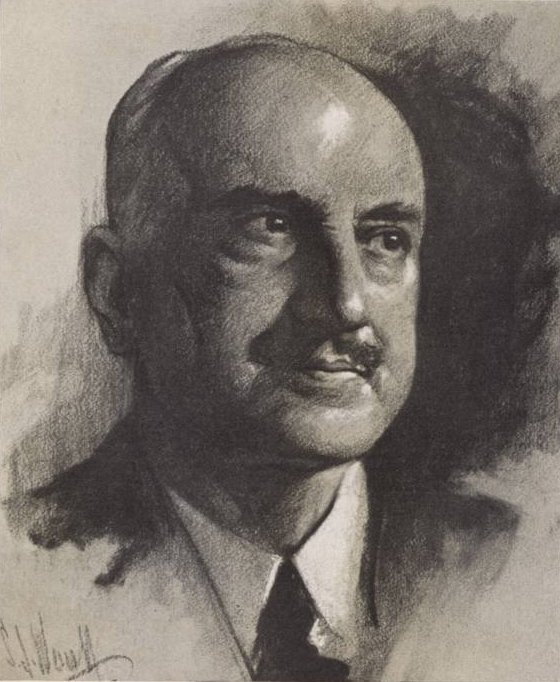„Кто забывает уроки истории, обречён на их повторение.“
Те, кто не помнит своей истории, обречены повторять её.
Джордж Сантая́на , урождённый Хо́рхе Агусти́н Никола́с Руи́с де Сантая́на — американский философ и писатель испанского происхождения. Сохраняя всю жизнь испанское гражданство, Сантаяна писал по-английски, вырос и получил образование в США и считается прежде всего принадлежащим к американской культуре, хотя большую часть жизни провёл в различных странах Европы.
Известен шеститомным философским сочинением «Жизнь разума» , работами «Скептицизм и животная вера» , «Последний пуританин» и др., а также эссе, стихотворениями и романами.
Wikipedia

„Кто забывает уроки истории, обречён на их повторение.“
Те, кто не помнит своей истории, обречены повторять её.
„Кто не помнит своего прошлого, обречен пережить его вновь.“
Вариант: Кто не помнит своего прошлого, обречён пережить его вновь.
„Конец войны увидят лишь мертвые.“
«Беседы с самим собой» (1922).
“Philosophers are as jealous as women. Each wants a monopoly of praise.”
Источник: Dialogues in Limbo (1926), P. 30
Источник: The Life of Reason: The Phases of Human Progress (1905-1906), Vol. III, Reason in Religion, Ch. VII
Источник: Persons and Places (1944), p. 14
The Poet's Testament http://www.poemhunter.com/poem/the-poet-s-testament/
Other works
“The mind celebrates a little triumph whenever it can formulate a truth.”
The Life of Reason: The Phases of Human Progress (1905-1906), Vol. IV, Reason in Art
“But what a perfection of rottenness in a philosophy!”
William James, of Santayana's The Interpretations of Poetry and Religion (1900), in a letter to George H. Palmer (1900), as quoted in George Santayana : A Biography (2003) by John McCormick
Misattributed
"Dickens"
Soliloquies in England and Later Soliloquies (1922)
Obiter Scripta (1936)
Other works
"On My Friendly Critics"
Soliloquies in England and Later Soliloquies (1922)
"The Irony of Liberalism"
Soliloquies in England and Later Soliloquies (1922)
“The highest form of vanity is love of fame.”
The Life of Reason: The Phases of Human Progress (1905-1906), Vol. II, Reason in Society
“To know how just a cause we have for grieving is already a consolation.”
The Life of Reason: The Phases of Human Progress (1905-1906), Vol. IV, Reason in Art
“Religion in its humility restores man to his only dignity, the courage to live by grace.”
Источник: Dialogues in Limbo (1926), Ch. 4
"The Academic Environment" p. 47 ( Hathi Trust http://hdl.handle.net/2027/uc1.b3923968?urlappend=%3Bseq=63)
Character and Opinion in the United States (1920)
"The Irony of Liberalism"
Soliloquies in England and Later Soliloquies (1922)
“The living have never shown me how to live.”
"On My Friendly Critics"
Soliloquies in England and Later Soliloquies (1922)
O World, Thou Choosest Not http://www.bartleby.com/236/270.html (1894)
Other works
Источник: The Life of Reason: The Phases of Human Progress (1905-1906), Vol. II, Reason in Society, Ch. VIII: Ideal Society
“It is not society's fault that most men seem to miss their vocation. Most men have no vocation.”
Источник: The Life of Reason: The Phases of Human Progress (1905-1906), Vol. II, Reason in Society, Ch. IV: The Aristocratic Ideal
Источник: The Life of Reason: The Phases of Human Progress (1905-1906), Vol. II, Reason in Society, Ch. IV: The Aristocratic Ideal
Источник: The Life of Reason: The Phases of Human Progress (1905-1906), Vol. II, Reason in Society, Ch. IV: The Aristocratic Ideal
“Our dignity is not in what we do, but in what we understand. The whole world is doing things.”
Источник: Winds of Doctrine: Studies in Contemporary Opinion (1913), p. 199
Gore Vidal, in Palimpsest, A Memoir (1995)
Misattributed
Источник: The Life of Reason: The Phases of Human Progress (1905-1906), Vol. III, Reason in Religion, Ch. VI
Pt. IV, Expression; § 67: "Conclusion.", p. 270
The Sense of Beauty (1896)
The Genteel Tradition at Bay (1931)
Other works
“Perhaps the only true dignity of man is his capacity to despise himself.”
Introduction to The Ethics of Spinoza (1910)
Introduction to The Ethics of Spinoza (1910)
“Animals are born and bred in litters. Solitude grows blessed and peaceful only in old age.”
Источник: Persons and Places (1944), p. 61
“Religions are not true or false, but better or worse.”
This statement is presented in quotes in The Philosophy of Religion and Advaita Vedanta (2008) by Arvind Sharma, p. 216, as a "Santayanan point", but earlier publications by the same author, such as in A Primal Perspective on the Philosophy of Religion (2006), p. 161, state it to be a stance of Santayana without actually indicating or in any ways implying that it is a direct quotation.
Disputed